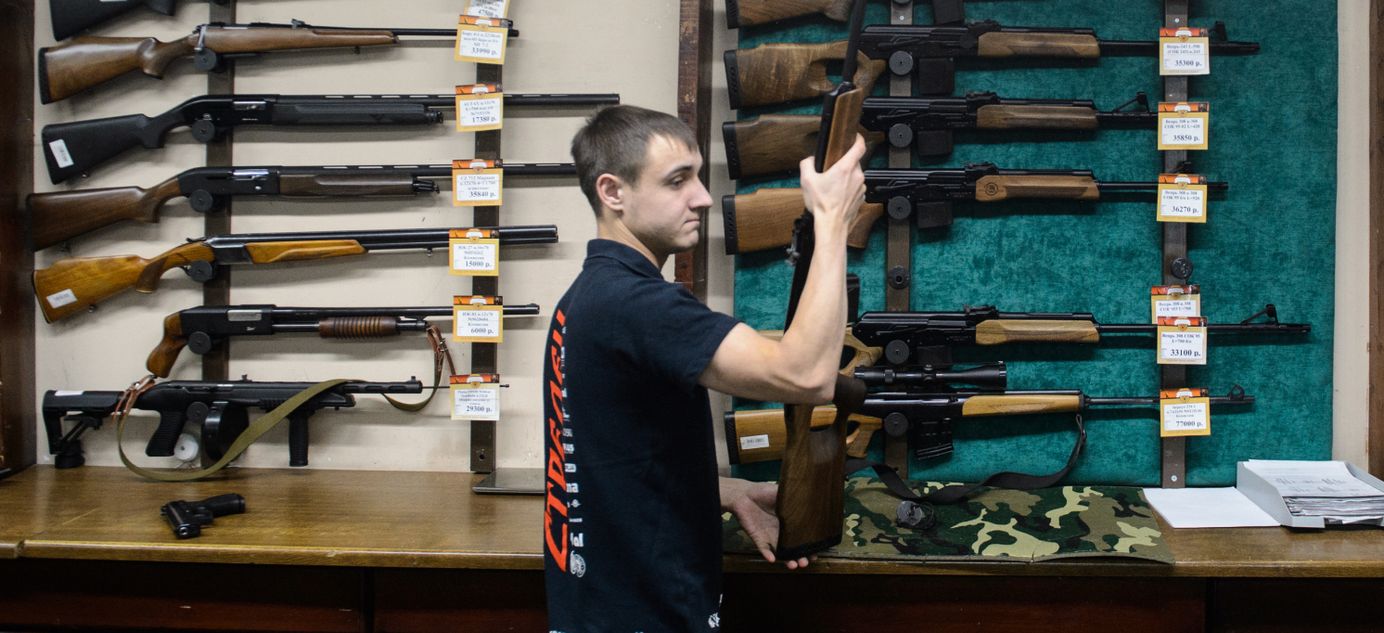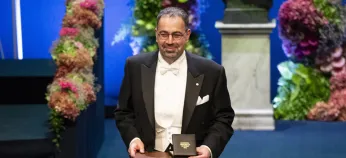
Retail deals galore
Hello! This week our top story is over $1 billion worth of major acquisitions in the grocery retail sector as market consolidation gathers pace. We also look at Elon Musk’s speech to an organization set-up by Stalin, the case of a successful businessman who died in prison, and why even the government admits Russia’s vaccination programme has failed.
Buyouts of Diksi & Billa highlight grocery market consolidation
Russia’s second biggest retail chain Magnit announced Tuesday it was buying the country’s fifth-biggest grocery chain, Diksi. Two days later, retailer Lenta helped German supermarket chain Rewe exit the Russian market by acquiring its Billa brand. X5, which controls Lenta, and Magnit, are now far ahead of the competition in a fast-growing market.
Magnit paid 93.4 billion rubles ($1.2 billion) for Diksi’s 2,600 stores, while Lenta spent 19.2 billion rubles for 161 Billa supermarkets. Both Magnit and Lenta are big chains that once operated mainly in the provinces and then muscled into the Moscow market.
- Diksi and Bila were long-standing players in Russian retail. Diksi was one of Russia’s first retail chains and grew rapidly after the 1998 financial crisis — however, it fell behind its rivals in the mid-2000s. Tobacco tycoon Igor Kesayev bought the chain in 2007, but could not revive its fortunes and, since the mid-2010s, Diksi has been in crisis. In 2017, its market capitalization dropped below the value of its 2007 IPO and the company de-listed from the stock exchange.
- Rewe, which operated Billa, came to Russia in 2004 in partnership with Grossmart chain owner Georgy Trefilov, who took a 25 percent stake in Russian Billa. In 2007, Trefilov’s retail empire, which included Billa, was ranked Russia’s 12th largest grocery retailer. But within a year, the partners fell out. Trefilov accused Rewe of taking over the business, only to find himself named in a 2010 lawsuit. Eventually he fled to London. Like Diksi, Billa was hit by financial problems.
- Two such big retail deals in the same week inevitably led to talk of market consolidation. In reality, this process has been on-going since the late 2000s. The market share of the top 10 players on the grocery market has almost doubled since 2010, from 17.4 percent in 2011 to 33 percent in 2019. Amid the pandemic, there was another big jump and the top 10 saw their share of the market reach 37 percent last year, according to Infoline analytics. Infoline attributes this to the big chains’ ability to hold prices lower for longer — delaying the impact of inflation and providing some defense against the growing popularity of online grocery shopping.
- And consolidation is likely to continue. There are other companies that look ripe for a takeover: for example, O’Key, Russia’s 8th biggest retailer, has been seeking a buyer for five years, while the Russian operation of Auchan has been suffering a slow-burning financial crisis since the mid 2010s.
What’s next? This week’s developments reveal that Russian retail assets are relatively expensive: both Diksi and Billa were sold at good multiples, especially considering their financial problems. And in the near future we could see new stock market listings. Retailer Vkusville, for example, has long been considering an IPO, and Lenta told investors in March it might go for a secondary placement.
How Elon Musk gave a speech to a ‘Stalinist’ society
This week, Sergei Kiriyenko, Kremlin eminence grise and deputy head of the presidential administration, announced that Elon Musk would speak at a state-sponsored education forum. At first, it looked like a weird PR stunt. But, against all expectations, Musk actually gave a speech via a video link and spent 40 minutes answering questions from students.
- Struggling with an unstable connection, Musk often dissolved into pixels as he outlined his vision. “Cars will be totally self-driving and all transport on earth, from ships to airplanes, will be electric,” he told his audience. He also waded into geopolitics, stating that “there should be more communication between Russia and the USA.”
- He expounded on U.S.-Russia relations in answer to a question about why he had agreed to appear at the forum. He said it was a personal invitation from President Vladimir Putin’s press secretary Dmitry Peskov.
- All this was a clear Kremlin propaganda win (the event that included Musk attracted 20 million views, according to Kiriyenko). It’s also a triumph for the Znaniye Society that organized it. This society was ‘revived’ by Putin in 2015 as part of a push to create a number of groups for schoolchildren to replicate the Soviet-era pioneer movement. This did not meet with much success until Znaniye began making waves.
- Znaniye was set-up by Stalin after the Second World War to retrain adult workers and foster patriotism. Members of the society gave lectures and published scientific magazines. The decree that established the group stated its goal was “the dissemination of political and scientific knowledge”. Putin’s version of Znaniye has similar aims: it was created, first and foremost, for the “development of civil society and the spiritual and moral education of citizens”.
- In addition to Musk’s speech, there was a flurry of reports in Russian media about the prospect that Tesla plants might open in Russia and neighboring Kazakhstan. This got several Russian governors over-excited. “Welcome to Udmurtia!”, wrote regional head Alexander Brechalov on his social media. Half an hour he added that Musk could count on tax breaks if he chose this region. Governor Andrei Vorobyov waxed lyrical about Moscow Region’s logistics, but Alexander Klychov from Oryol Region went further than everyone, punning on the Russian word for eagle to compare Tesla to “a fearless conqueror of new heights.”
- Whether Musk is actually planning to build factories in Russia is still a big question. But Tesla does have high profile devotees. Back in 2017 billionaire Roman Abramovich bought about 20 of Musk’s cars for himself and colleagues.
Why the world should care It might seem like Musk’s invitation was a signal from the Russian authorities that they are ready for dialogue. In reality, it’s just a facade — there’s no evidence anything of substance was at stake.
Trial of dead businessman underway amid torture allegations
Businessman and scientist Valery Pshenichny died in mysterious circumstances in 2018 at a detention center where he was being held on charges of embezzling state funds linked to a defense contract. This week saw the start of a court hearing into his case. The Bell looked into his tragic story.
- Pshenichny’s NovIT Pro company worked on 3D modelling of nuclear submarines and its clients were state-owned enterprises in the defense sector. It was always a small player, but grew steadily: from being worth 25 million rubles in 2010 ($350,000 at the exchange rate of the time) to more than 200 million by 2016 ($2.7 million). Pshenichny ran the company with his son Denis, who is now living with his family as a political refugee in France.
- The Ministry of Defense signed a contract with the company in 2015 to create a 3D model of Varshavyanka class submarines. The following year, a further agreement was signed in the form of a subcontract with Admiralty Shipyards.
- Pshenichny first heard about the legal claims against him in January 2018. His son said he was in his underwear when police and investigators came to his apartment. He was questioned in the offices of Russia’s powerful Investigative Committee, where he saw his son for the last time.
- Pshenichny’s family insisted they were never given any details of the case. On Feb. 5 at about 7 p.m. his son read an online news report saying his father had been found hanged in a detention center. Officially, the death was recorded as suicide. But independent media outlet Novaya Gazeta later published details of a medical examination that revealed numerous cuts to his body, evidence of electric shocks and signs of repeated sexual assault.
- Details of the case emerged later. Pshenichny was arrested on suspicion of fraud relating to the Defense Ministry’s submarine order. Case materials shown to The Bell suggested this was based on claims made by Andrei Petrov, a former director of Pshenichny’s company.
- Pshenichny and Petrov were embroiled in a corporate conflict a year before the criminal case was opened, according to Pshenichy’s son and his lawyer. Pshenichny apparently found a hole in the accounts and ended up making a statement to the police about the theft of 33.5 million rubles. Petrov was arrested and criminal proceedings began — but the case was halted due to ‘sudden illness’. Nobody knows what happened next.
- Usually, business offenses should not mean pre-trial arrest. But — as soon as a business person is accused of fraud in Russia — he/she falls under the standard criminal code and becomes a swindler in the eyes of the law.
- Pshenichny’s case is known because of his brutal death in a prison cell. But there are thousands of similar cases — and numbers look set to rise. A government commission recently approved a draft law from the Ministry of Justice that lowers the threshold for law enforcement to hold businesses accountable for embezzling funds from state defense contracts.
Why the world should care Business people of all sizes — from those listed on Forbes to owners of small businesses — often describe state contracts as ‘toxic’. For many, refusing to work with the state is the only unbreakable law of business. However, even turning down state contracts can be a risk.
IN BRIEF
Even the authorities admit the failure of Russia’s vaccination programme
We previously wrote about Russia’s creaking coronavirus vaccination program. This week, independent outlet Meduza (a publication that the Ministry of Justice recently designated a ‘foreign agent’) reported some concrete figures: the rate of vaccinations in Moscow is now running at just 2,500-3,500 per day (the target was 60,000). Since the vaccine is readily available, it appears just 10 percent of the population has been vaccinated and that everyone who wishes to have the jab voluntarily has already come forward.
Even Moscow Mayor Sergei Sobyanin acknowledged things were going badly. If Muscovites were more responsible there would be twice as many people vaccinated in the capital, he said Friday. Later, Prime Minister Dmitry Medvedev floated the idea of making the vaccine compulsory. Lawyers and sociologists who spoke to The Bell are doubtful that this is viable — firstly, it goes against the Russian Constitution and, perhaps more importantly, nobody wants to impose such an unpopular decision in the build-up to the State Duma election in the fall. It’s clear the authorities have fallen into a trap of their own making: after months of insisting Russia has beaten coronavirus, few people think it is worth getting vaccinated.





